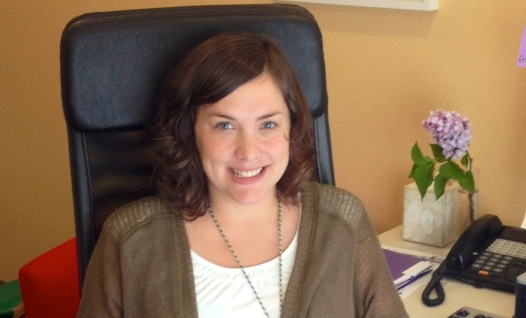Our “I’m An Advocate” blog series introduces you to people who are speaking up for an end to homelessness in different ways. Today we introduce you to Norene Roberts, the program manager at The Salvation Army’s Catherine Booth House, a confidentially located domestic violence shelter for women and children.
Norene earned a women’s studies and multicultural studies bachelor’s degree from Western Washington University, and a Master of Science in social work degree from Columbia University. Norene’s decade of professional social service experience includes work with organizations focused on child abuse and neglect, youth homelessness, youth development, human trafficking, and sexual assault and rape, in addition to domestic violence and family homelessness.
Norene currently serves on the Firesteel Advisory Council. We’re grateful to have her on our team, and also that she took the time to share her thoughts for today’s post.
How do you define advocacy?
Advocacy is simply acting in the interest of someone or something.
Why are you a housing advocate?
Without a home there is very little stability for other successes. If education, and employment, and having healthy relationships, and access to healthcare, and all the things that make people happy and healthy are growing plants, then safe and stable housing is the pot and soil that holds them.
What methods do you use to advocate for housing?
Lots, but mainly I rely on a knowledge of what resources we have in our community, and the phone — I use the phone a lot.
What’s your favorite advocacy success story?
Hmmm, I’m not sure that I have one favorite. I think advocacy is most rewarding when we are working with folks who are completely unfamiliar with housing assistance options or the process of securing housing in general. For example, at the Catherine Booth House about 25 percent of the women we serve are immigrants and refugees. For a lot of these women, our housing and public assistance systems are completely new to them. After 10 years of social service work, these systems still boggle my mind, so as you can imagine, it can be pretty overwhelming for folks who have never been asked to navigate them before — especially when they have limited English skills. We celebrate anytime one of our families secure housing, but it feels particularly good when I know that our advocacy was a major contributing factor in achieving that success.
What advice would you give to someone who is interested in advocating but doesn’t know where to begin?
First and foremost, listen. Advocating for any person or group first requires that you know what it is that that person or group wants and needs – not what we think they want and need – and that requires opening your ears before your mouth. Even when we have firsthand knowledge of homelessness, that does not mean we can speak for all people experiencing homelessness or know what all people experiencing homelessness want and need.
Second, do your reading. Get online and learn what resources are out there and who is already doing the work. Talk to people in the know and develop relationships. There are so many of us out here doing this work, and when we communicate and coordinate we are most effective, so get connected.
Last, if, like me, you are not a patient person by nature, then take a deep breath because housing advocacy can be frustrating. Ending homelessness, like all social change movements, is an exasperatingly slow process that requires unrelenting persistence and usually a sense of humor, too, so don’t forget to bring that along.
Want to read other advocates’ stories? Check out “I’m An Advocate” posts featuring Kim Herman, Executive Director of the Washington State Housing Finance Commission, and Kay Field, founder of the free family law clinic at YWCA Pathways for Women.
Who should we feature next? Share your suggestions by posting a comment below!
